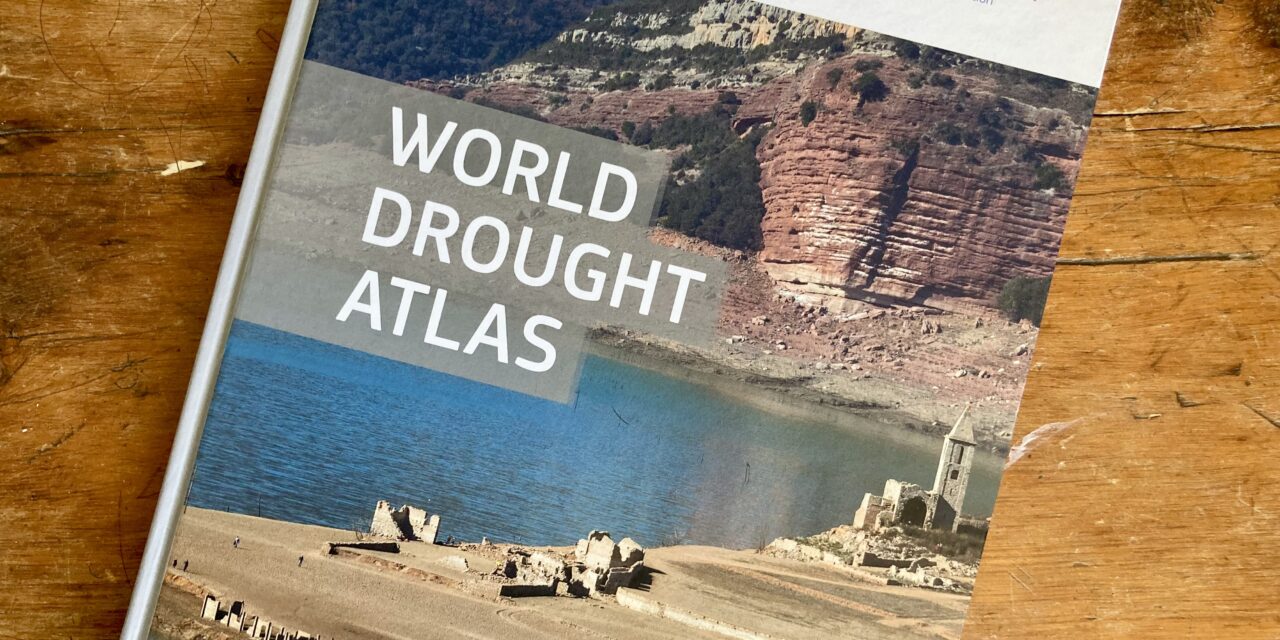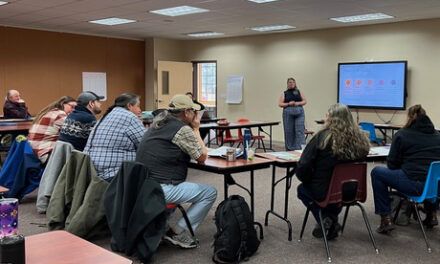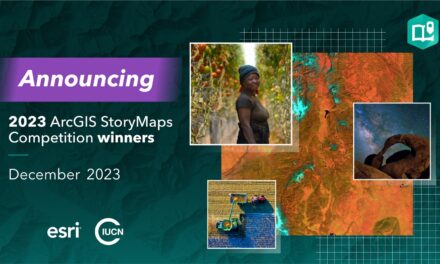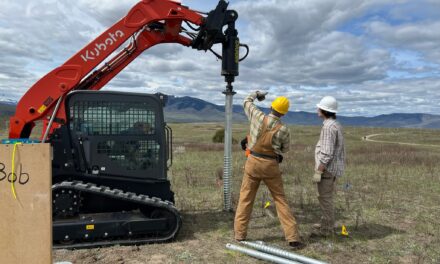The Native Waters on Arid Lands project was recently featured in the 2024 World Drought Atlas, a 175-page hardcover reference book for decision-makers detailing drought impacts and adaptation solutions from around the world.
Published by the European Commission Joint Research Centre and the United Nations Convention to Combat Desertification (UNCCD), the World Drought Atlas was provided to world leaders from 196 countries and the European Union at the sixteenth Conference of the Parties (COP16) to the UNCCD in Riyadh, Saudi Arabia, during December 2024.
“The atlas aims to provide decision-makers with a systemic perspective on drought risks and impacts, illustrates how risks are interconnected across sectors, and offers guidance on proactive and prospective drought management and adaptation,” said Ibrahim Thiaw, Executive Secretary of UNCCD and Under-Secretary-General of the United Nations, in the book’s forward.
The Drought Atlas provides an overview of our current understanding of what droughts are and how they impact societies at global and regional levels. Native Waters on Arid Lands, which was featured in the book’s “Regional Perspectives” chapter, was selected as a representative example from the Southwestern US. This section describes drought impacts in the Southwest, how Indigenous communities are being affected, and showcases some of the response actions that the Native Waters team explored.
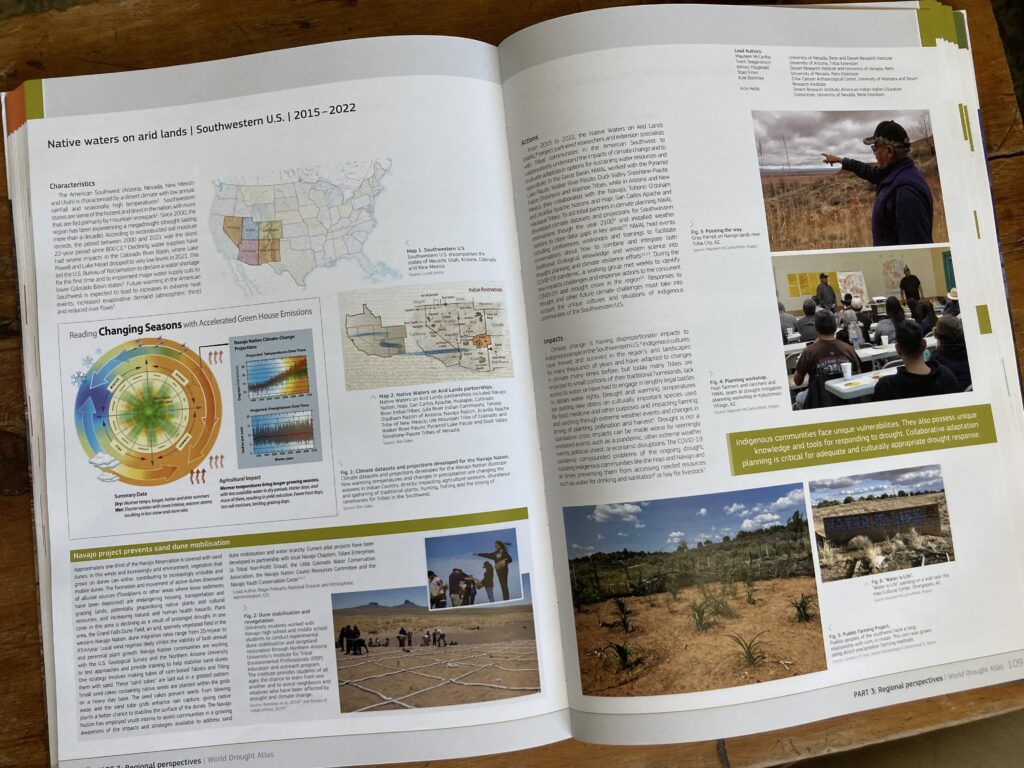
“Our approach brought together Indigenous knowledge and western science to support Native farmers, ranchers, and resource stewards in dealing with drought and other climate impacts,” said Maureen McCarthy, project director of Native Waters on Arid Lands and Research Professor of Environmental Science at DRI. “We were thrilled to be featured in the Drought Atlas and to highlight Tribal climate resilience in the Southwest.”
Native Waters on Arid Lands, which was funded by USDA-NIFA (grant no. 2015-69007-23190), partnered researchers and extension specialists with Indigenous communities in the Southwest, Great Basin, and Northern Plains to collaboratively understand the impacts of climate change on water resources and agriculture. Although this project came to a close in 2022, many members of the Native Waters project team continue to support agricultural adaptation efforts in partnership with Native and Indigenous communities across the West through the work of the Native Resilience project.
To view the World Drought Atlas online, please visit: https://www.unccd.int/sites/default/files/2024-12/World%20Drought%20Atlas%202024.pdf

